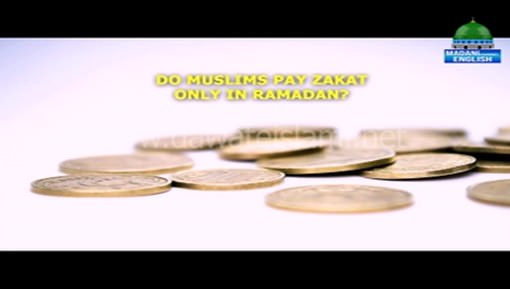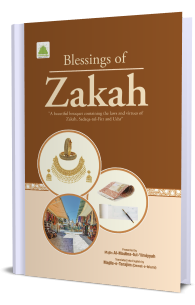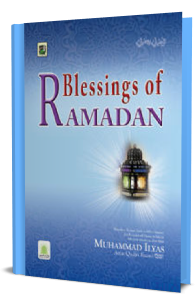
The outbreak of coronavirus is certainly a tragedy which has affected hundreds of thousands of people worldwide. It spread across the globe like a wildfire, claiming many lives and rocking global economy. Coronavirus has had significant social, moral, political and economic effects on the societies. Its devastating impacts have extended to almost all sectors and wreaked havoc on many industries such as tourism, education, construction, transportation, automobile, oil and gas, etc. This pandemic has posed a serious challenge to health and medical facilities of both developed and underdeveloped countries; even the financial and political stability have come at stake. It has shaken up business on a massive scale, plunging market and business activities to the lowest level. It is really one of the most difficult times the world has ever witnessed. However, being a Muslim, we should never lose hope, and should patiently face all difficulties with the intention to earn reward. The Beloved Prophet صَلَّى اللّٰهُ عَلَيْهِ وَاٰلِهٖ وَسَلَّم has stated: Whatever grief, trouble, sorrow, distress, hurt and pain befalls a Muslim, even if a thorn pricks his foot, Allah عَزَّوَجَلَّ forgives his sins because of it. (Sahih Bukhari, vol. 4, pp. 3, Hadees 5641)
Another Hadees states: ‘On the Day of Judgement, when Sawab will be given to troubled people, the people who live with peace and safety will wish, “If only their skins had been cut with scissors in the world’. (Sunan-ut-Tirmizi, vol. 4, pp. 180, Hadees 2410)
Let’s have a look at some specific impacts of Coronavirus.
Poverty
Lockdown is no less than a disaster for even a single country, but due to this pandemic, the whole world had to go through it. It is as if the world became static all of a sudden which caused an instant break to economy. People of all classes have suffered its affects irrespective of whether they are businessmen, salaried employees or daily wagers. This has given rise to poverty, and especially affected the lower class of the society. We should collectively overcome this problem by feeling the pain of the needy around us and helping them financially to our last extent.
Lack of food supplies
Production of staple crops such as wheat, rice, and vegetables has been affected as well, disrupting the global food trade system and pushing the world into another crisis of food shortage. Underdeveloped countries are the worst hit areas where people were already battling poverty and hunger. Apart from poor food supplies, markets and warehouses are running out of stock due to an avoidable issue. Masses are active enough to store as much food as they can, making others’ life miserable. It is a serious global issue, so each individual should consider it their responsibility to avoid hoarding and purchase only as much food as required. They should stay away from greed and also provide food to people who cannot actually afford it.
Pharmaceutical shortage
The coronavirus pandemic has alarmingly led to the shortages of surgical masks, surgical gloves, sanitizers, several essential medicines, other medical products, and even raw materials for many key drugs, such as antibiotics. Moreover, people have also faced shortage of a large number of pharmaceuticals used for chemotherapy, neurological diseases, and psychological and psychiatric disorders.
Education
At first, Coronavirus not only attacked people, but it also attacked and invaded the education system, leading to the temporary closures of schools, colleges and universities worldwide. The efforts made to provide students with quality education online could not produce the desired results, especially in developing countries due to lack of resources. However, students are advised to have courage and leave no stone unturned to cover this educational loss.
Some positive impacts of Coronavirus
Surprisingly, Coronavirus has also had some really positive impacts on the society. People have learnt the significance of giving time to their family in this era of technology. They have learnt to live a simple life, have simple food, survive in limited resources, help and support each other, avoid wasting time roaming around outside, adopt cleanliness, remain patient in difficult situations, and follow rules and regulations. They have also learnt to live with unity despite having differences of opinions in many matters. In short, Coronavirus has brought people closer and forced them to form an exemplary society. Most importantly, people have turned to Allah عَزَّوَجَلَّ and His Beloved Prophet صَلَّى اللّٰهُ عَلَيْهِ وَاٰلِهٖ وَسَلَّم. They have started practising Islam practically, as all the aforementioned positive impacts are not new to us; these are actually the Islamic teachings which we had failed to follow since decades.
Coronavirus will leave such marks on human history that the generations to come will always remember the deadly tragedy. Nobody knows how long we will face the aftershocks of this pandemic. However, it has proved that all technological advancement in this scientific era is simply worthless in front of a virus which cannot even be seen with an unaided eye! Coronavirus has reminded humankind that despite having apparent power, he actually has no power at all. He cannot even blink his eye without the will of Allah عَزَّوَجَلَّ. Only Allah عَزَّوَجَلَّ is All-Powerful. May Allah عَزَّوَجَلَّ protect us from the disastrous impacts of Coronavirus, by the blessings of this holy month of Ramadan.























Comments